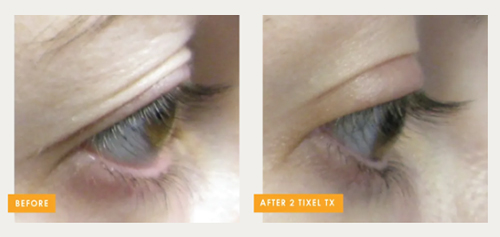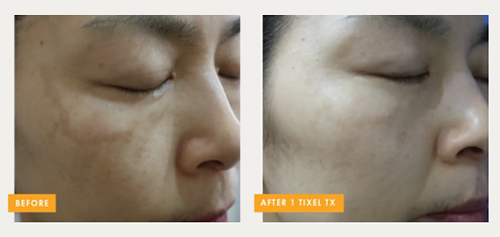
Dry eye is a common condition where the eyes don't produce enough tears, or the tears evaporate too quickly. This can lead to a variety of uncomfortable symptoms such as dryness, grittiness, stinging, burning, redness, and even blurry vision.
While traditionally it was associated with older age, dry eye is increasingly affecting people of all age groups, including children and young adults. A major contributing factor to this widespread prevalence is the increased use of technology. Prolonged screen time on computers, smartphones, and tablets often leads to reduced blink rates. Blinking is crucial for spreading tears across the eye's surface, keeping it lubricated and healthy. When we blink less, the tear film can break down, leading to dry spots and the symptoms of dry eye.
What is Dry Eye?
Understanding dry eye will help you determine the best treatment option. Dry eye occurs when a person doesn't have enough quality tears to lubricate and nourish the eye. Tears reduce eye infections, wash away foreign matter, and keep the eye’s surface smooth and clear. People with dry eyes either do not produce enough tears or their tears are poor quality. It’s a common and often chronic problem, especially in older adults.
Tixel
Give your dry, irritated eyes the relief they deserve! Our doctor recommends Tixel for Dry Eye treatment, a cutting-edge solution that's FDA-cleared and safe for all skin types. Experience a comfortable, non-invasive treatment that effectively targets the root cause of your dry eye symptoms, helping you achieve lasting comfort and clearer vision without radiation like other marketed devices.
Click Here to Schedule Your Tixel Appointment Today
Artificial Tears
For mild cases of dry eyes, the best option is over-the-counter eye drops. Here are a few tips for selecting the right one:
These artificial tears are watery. They often provide quick relief with little or no blurring of your vision, but their effect can be brief, and sometimes you must use these drops frequently to get adequate relief.
These are more gel-like and provide longer-lasting lubrication. However, these drops can cause significant blurring of your vision for several minutes. For this reason, high-viscosity artificial tears are recommended at bedtime.
Prescription Dry Eye Treatments
There are several prescriptions that treat dry eye differently. Your eye doctor can advise the best option for your situation.
There are specialty contact lenses that deliver moisture to the surface of the eye. They're called scleral lenses or bandage lenses.
If your eyelids are inflamed, this can prevent oil glands from secreting oil into your tears. Your doctor may recommend antibiotics to reduce inflammation.
These are eye drops to control inflammation on the surface of your eyes (cornea) using the immune-suppressing medication cyclosporine (Restasis) or corticosteroids.
If artificial tears don't help, another option may be a tiny eye insert. Once a day, you place the hydroxypropyl cellulose (Lacrisert) insert between your lower eyelid and your eyeball. It dissolves slowly, releasing a substance to lubricate your eye.
Available as pills, gel or eye drops, cholinergic (pilocarpine, cevimeline), these help to increase tear production.
For serious dry eye that's not responding to other treatment, these eyedrops are made with a sample of your blood. It's processed to remove the red blood cells and then mixed with a salt solution.
Dry Eye Procedures
Tear ducts can be plugged with tiny silicone or collagen plugs to reduce tear loss. By partially or completely closing your tear ducts, it can keep your tears from leaving your eye too quickly.
This treatment helps to unblock the oil glands responsible for producing the oil that keeps tears from evaporating too quickly. Placed on the eyelids, the device delivers gentle heat, which liquefies the oil, making it easy to express. TearCare is especially helpful if you are taking the medication Accutane.
Treatments focus on rejuvenating the eyelid glands so your tear film is well-balanced and does not evaporate as quickly.


You don’t have to suffer from the symptoms of dry eye. Talk to our optometrists about dry eye treatment options designed to address the underlying cause of your condition.






